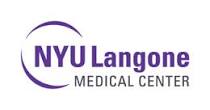Rituximab and Belimumab for Lupus Nephritis
| Status: | Active, not recruiting |
|---|---|
| Conditions: | Lupus, Nephrology |
| Therapuetic Areas: | Immunology / Infectious Diseases, Nephrology / Urology |
| Healthy: | No |
| Age Range: | 18 - Any |
| Updated: | 6/16/2018 |
| Start Date: | October 2014 |
| End Date: | February 19, 2019 |
Rituximab Plus Cyclophosphamide Followed by Belimumab for the Treatment of Lupus Nephritis (ITN055AI)
In this experimental study, researchers will try to find out if treatment of lupus nephritis
with a combination of rituximab and cyclophosphamide (CTX), or a combination of rituximab and
CTX followed by treatment with belimumab is safe and if this drug combination can block the
immune system attacks.
with a combination of rituximab and cyclophosphamide (CTX), or a combination of rituximab and
CTX followed by treatment with belimumab is safe and if this drug combination can block the
immune system attacks.
Lupus nephritis is a severe form of systemic lupus erythematosus (SLE) with active disease in
the kidneys. SLE is a complex disease in which the body's own immune system attacks some of
the body parts: the skin, the joints, the kidneys, the nervous system, the heart, the lungs
and the blood. The cause of SLE is not known. Treatment for SLE usually involves drugs that
are designed to block the immune system attacks. When SLE affects the kidneys (nephritis),
stronger immune suppressing treatment is usually needed.
The drugs used in treatment of lupus nephritis often do not cure the disease and can cause
serious side effects, including lowering the immune system too much. When the immune system
is too low, a person is at a higher risk of getting infections. Therefore, research into new
treatments with fewer serious side effects is needed for lupus nephritis.
the kidneys. SLE is a complex disease in which the body's own immune system attacks some of
the body parts: the skin, the joints, the kidneys, the nervous system, the heart, the lungs
and the blood. The cause of SLE is not known. Treatment for SLE usually involves drugs that
are designed to block the immune system attacks. When SLE affects the kidneys (nephritis),
stronger immune suppressing treatment is usually needed.
The drugs used in treatment of lupus nephritis often do not cure the disease and can cause
serious side effects, including lowering the immune system too much. When the immune system
is too low, a person is at a higher risk of getting infections. Therefore, research into new
treatments with fewer serious side effects is needed for lupus nephritis.
Inclusion Criteria:
1. Diagnosis of Systemic Lupus Erythematosus (SLE) by American College of Rheumatology
(ACR) criteria.
2. Positive antinuclear antibody (ANA) or positive anti-ds DNA test results at visit -1
or any time within 14 days before visit -1.
3. Active proliferative lupus nephritis, as defined by either of the following:
- Kidney biopsy documentation within the last 3 months of International Society of
Nephrology/Renal Pathology Society (ISN/RPS) proliferative nephritis: Class III,
Class IV, or Class V in combination with Class III or IV.
- Active urinary sediment and kidney biopsy documentation within the last 12 months
of ISN/RPS proliferative nephritis: Class III, Class IV, or Class V in
combination with Class III or IV. Active urinary sediment is defined as any one
of the following:
- >5 RBC/hpf in the absence of menses and infection;
- >5 White blood cell per high powered field (WBC/hpf) in the absence of infection;
or
- Cellular casts limited to RBC or WBC casts.
4. Urine protein-to-creatinine ratio (UPCR) >1 at study entry based on a 24-hour
collection.
5. Ability to provide informed consent.
Exclusion Criteria:
1. New onset lupus nephritis, defined as lupus nephritis for which the participant has
not yet been treated with either mycophenolate mofetil or cyclophosphamide.
2. Neutropenia (absolute neutrophil count <1500/mm^3).
3. Thrombocytopenia (platelets <50,000/mm^3).
4. Moderately severe anemia (Hgb < mg/dL).
5. Moderately severe hypogammaglobulinemia (IgG <450 mg/dL) or Immunoglobulin A (IgA)
<10mg/dL.
6. Positive QuantiFERON -Tuberculosis (TB) Gold test results.
7. Pulmonary fibrotic changes on chest radiograph consistent with prior healed
tuberculosis.
8. Active bacterial, viral, fungal, or opportunistic infections.
9. Evidence of infection with human immunodeficiency virus (HIV), hepatitis B (as
assessed by HBsAg and anti-HBc) or hepatitis C.
10. Hospitalization for treatment of infections, or parenteral (IV or IM) antibacterials,
antivirals, anti-fungals, or anti-parasitic agents within the past 60 days.
11. Chronic infection that is currently being treated with suppressive antibiotic therapy,
including but not limited to tuberculosis, pneumocystis, cytomegalovirus, herpes
simplex virus, herpes zoster, and atypical mycobacteria.
12. History of significant infection or recurrent infection that, in the investigator's
opinion, places the participant at risk by participating in this study.
13. Receipt of a live-attenuated vaccine within 3 months of study enrollment.
14. End-stage renal disease (eGFR <20 mL/min/1.73m^2).
15. Concomitant malignancies or a history of malignancy, with the exception of adequately
treated basal and squamous cell carcinoma of the skin, or carcinoma in situ of the
cervix.
16. History of transplantation.
17. History of primary immunodeficiency.
18. Pregnancy.
19. Breastfeeding.
20. Unwillingness to use an FDA-approved form of birth control (including but not limited
to a diaphragm, an intrauterine device, progesterone implants or injections, oral
contraceptives, the double-barrier method, or a condom).
21. Use of cyclophosphamide within the past 6 months.
22. Use of anti-Tumor Necrosis Factor (TNF) medication, other biologic medications, or
experimental non- biologic therapeutic agents within the past 90 days, or 5 half-lives
prior to screening, whichever is greater.
23. Intravenous immunoglobulin (IVIG), plasmapheresis, or leukopheresis within the past 90
days.
24. Use of investigational biologic agent within the past 12 months.
25. Prior treatment with rituximab, belimumab, atacicept, or other biologic B cell
therapy.
26. Liver function test [aspartate aminotransferase (AST), alanine aminotransferase (ALT),
or alkaline phosphatase] results that are >=2 times the upper limit of normal.
27. Severe, progressive, or uncontrolled renal, hepatic, hematological,gastrointestinal,
pulmonary, cardiac, or neurological disease, either related or unrelated to SLE, with
the exception of active lupus nephritis (or, in the investigator's opinion, any other
concomitant medical condition that places the participant at risk by participating in
this study).
28. Comorbidities requiring corticosteroid therapy, including those which have required
three or more courses of systemic corticosteroids within the previous 12 months.
29. Current substance abuse or history of substance abuse within the past year.
30. History of severe allergic or anaphylactic reactions to chimeric or fully human
monoclonal antibodies.
31. History of anaphylactic reaction to parenteral administration of contrast agents.
32. Lack of peripheral venous access.
33. History of severe depression or severe psychiatric condition.
34. History of suicidal thoughts within the past 2 months or suicidal behavior within the
past 6 months, or a significant suicide risk in the investigator's opinion.
35. Inability to comply with study and follow-up procedures.
We found this trial at
15
sites
1648 Pierce Dr NE
Atlanta, Georgia 30322
Atlanta, Georgia 30322
(404) 727-5640

Principal Investigator: S. Sam Lim, MD, MPH
Phone: 404-616-7553
Emory University School of Medicine Emory University School of Medicine has 2,359 full- and part-time...
Click here to add this to my saved trials
1720 2nd Ave S
Birmingham, Alabama 35233
Birmingham, Alabama 35233
(205) 934-4011

Principal Investigator: Winn Chatham, MD
Phone: 205-975-8091
University of Alabama at Birmingham The University of Alabama at Birmingham (UAB) traces its roots...
Click here to add this to my saved trials
333 South Columbia Street
Chapel Hill, North Carolina 27599
Chapel Hill, North Carolina 27599
Principal Investigator: Will Pendergraft, MD, PhD
Phone: 919-445-2730
Click here to add this to my saved trials
Click here to add this to my saved trials
171 Ashley Avenue
Charleston, South Carolina 29425
Charleston, South Carolina 29425
843-792-1414

Principal Investigator: Diane Kamen, MD, MS
Phone: 843-792-8613
Medical University of South Carolina The Medical University of South Carolina (MUSC) has grown from...
Click here to add this to my saved trials
410 W 10th Ave
Columbus, Ohio 43210
Columbus, Ohio 43210
(614) 293-8652

Principal Investigator: Samir Parikh, MD
Phone: 614-293-3942
The Ohio State University, Wexner Medical Center Located in Columbus, The Ohio State University Wexner...
Click here to add this to my saved trials
Dallas, Texas 75390
Principal Investigator: David karp, MD, PhD
Phone: 214-648-7219
Click here to add this to my saved trials
Click here to add this to my saved trials
Click here to add this to my saved trials
Manhasset, New York 10030
Principal Investigator: Cindy Aranow, MD
Phone: 516-562-2401
Click here to add this to my saved trials
550 1st Ave
New York, New York 10016
New York, New York 10016
(212) 263-7300

Principal Investigator: Jill Buyon, MD
Phone: 646-501-7387
New York University Langone Medical Center NYU NYU Langone Medical Center, a world-class, patient-centered, integrated,...
Click here to add this to my saved trials
New York, New York 10021
Principal Investigator: Kyriakos Kirou, MD, DSc
Phone: 212-774-2967
Click here to add this to my saved trials
630 W 168th St
New York, New York
New York, New York
212-305-2862

Principal Investigator: Anca Askanase, MD, MPH
Phone: 212-342-1622
Columbia University Medical Center Situated on a 20-acre campus in Northern Manhattan and accounting for...
Click here to add this to my saved trials
Click here to add this to my saved trials
San Francisco, California 94143
Principal Investigator: Maria Dall'era, MD
Phone: 415-502-1886
Click here to add this to my saved trials